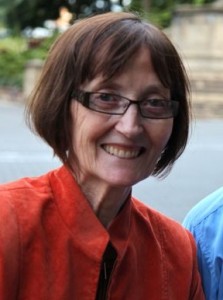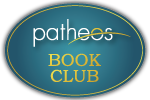Tomorrow I’m participating in a panel at Bethel University on Alzheimer’s Disease and the theology of human nature.
As life expectancies increase, Alzheimer’s (and related dementia) is clearly becoming, not just a perplexing medical and scientific challenge, but a massive social and economic problem as well. Of course, for those suffering with dementia (and for their loved ones and caregivers), it is a tremendous relational and existential problem as well. And it raises all sorts of theological and ethical questions. For the person with dementia, it hits upon something very personal: identity. “Who am I? Who am I becoming? Who will be when I die?”
This last question is the title of a book by Christine Bryden (published in 1998 under her maiden name, Boden): Who Will I Be When I Die?
In September 2001, six years after being diagnosed with dementia, Christine delivered a paper to the National Conference of Mental Health and Spirituality in Later Life. Her paper was a personal reflection on her identity, as a person with  dementia, but also as a Christian reflecting on her spiritual life, her struggle with identity, and her perceptions of how others relate to her. The paper, ” Dementia–A Spiritual Journey Towards the Divine: A Personal View of Dementia,” is published in the Journal of Religious Gerontology.
dementia, but also as a Christian reflecting on her spiritual life, her struggle with identity, and her perceptions of how others relate to her. The paper, ” Dementia–A Spiritual Journey Towards the Divine: A Personal View of Dementia,” is published in the Journal of Religious Gerontology.
In her talk, she was responding emotionally to the then prominent view of dementia that the “mind is absent and the body an empty shell.” Alzheimer’s was considered to be the “apparent disintegration of the human being” and the “loss of the self.”
How does someone like Bryden, who still possesses such reflective capacities, not respond to this view with a visceral reaction? Bryden called this perception of Alzheimer’s the “toxic lie of dementia.”
For Bryden, the diminishing of certain reasoning and memory capabilities, which comes with dementia, does not equate to a loss of the self or to the diminishment (or disintegration) of the person.
An important book of collected essays on dementia and human nature, called Dementia: Mind, Meaning, and the Human Person illustrates changing attitudes about dementia. Most of the essays challenge the “toxic lie,” at least in its basest and most reductive form, by reflecting on human nature as inextricably relational and of communication as a hermeneutical event that depends less on rationality than on meaningful presence. We are who we are in relation to others, not just because of what we (or I) as an individual know or remember. The notion that we are constituted by the coherence of our memories was a common modernist view of the human person, represented by Locke. It’s an unfortunately holdover of the modernist vision of the world.
In the new picture of human nature in relation to dementia, our identities are not dependent on our own memories, or on the proper functioning of our own rational capacities, but on the way in which we are connected to others. It is possible that the memories of others can “stand in” for the memories of the person with dementia (parallel to the notion of “implicit faith” in Christian theology). The key of identity is the relation of others to us and we to them. Theologically, we take it an infinite step further to say that our identities are held together by God. God’s unfailing covenant love is the key to our identity as human persons.
Admittedly, this better picture of human personhood does not remove the very real, emotional, relational, existential, and tangible challenges that come with dementia–particularly in early-onset forms. But it surely must help.
In the words of Christine Bryden:
I believe that I am much more than just my brain structure and function, which is declining daily. My creation in the divine image is as a soul capable of love, sacrifice and hope, not as a perfect human being, in mind or body. I want you to relate to me in that way, seeing me as God sees me. I am confident that even if the continuing damage to my temporal lobe might diminish the intensity of my God-experience, there will be other ways in which I can maintain my relationship with God.












